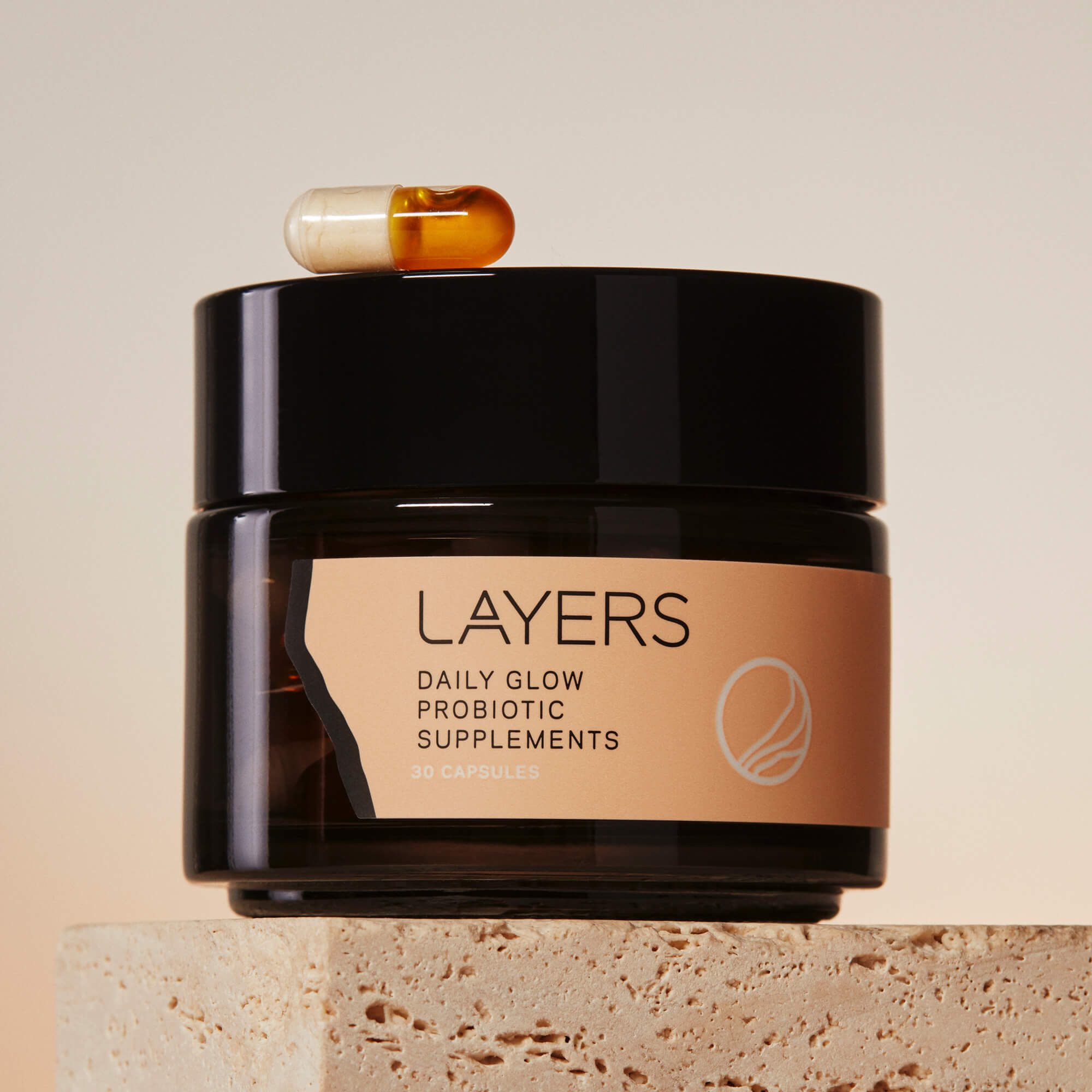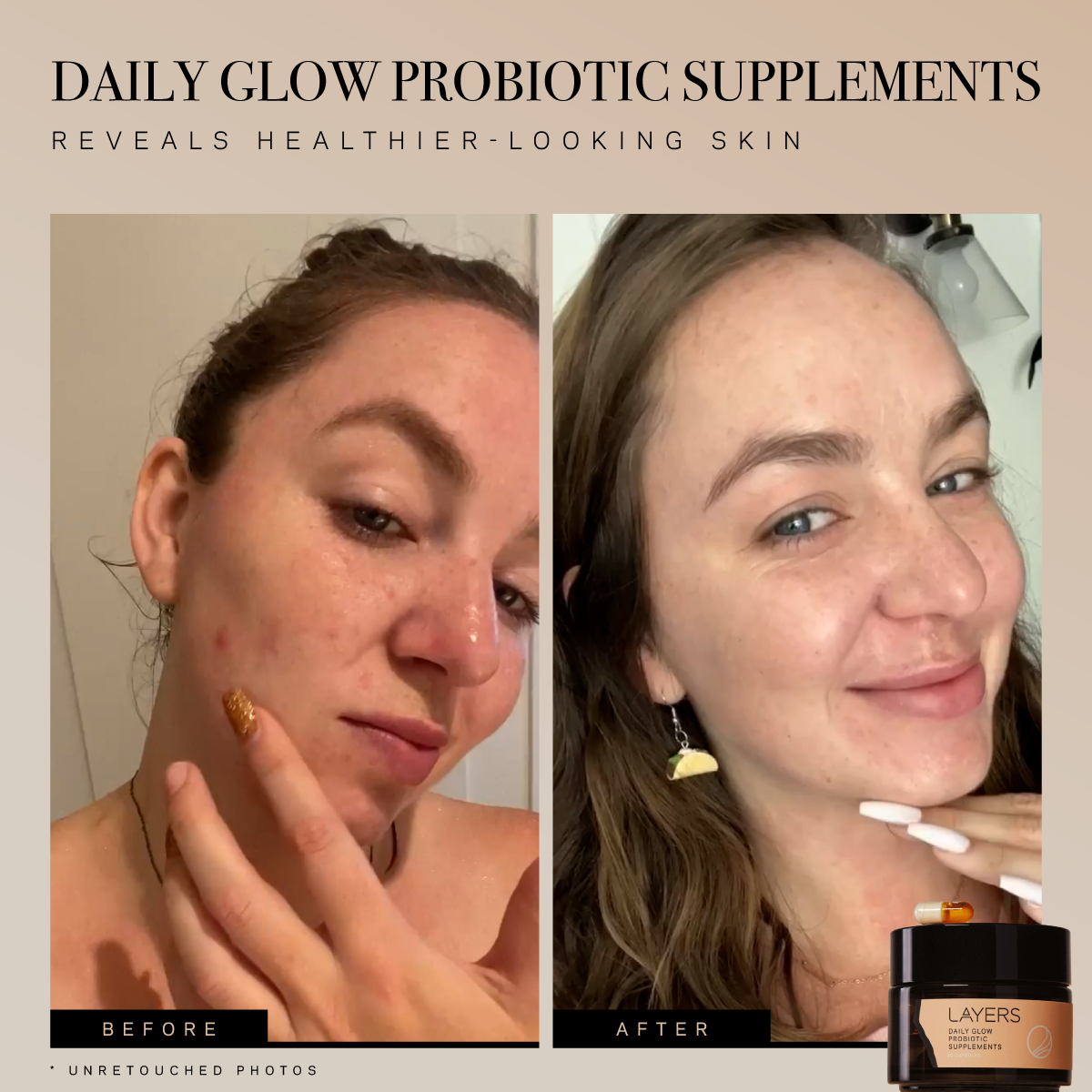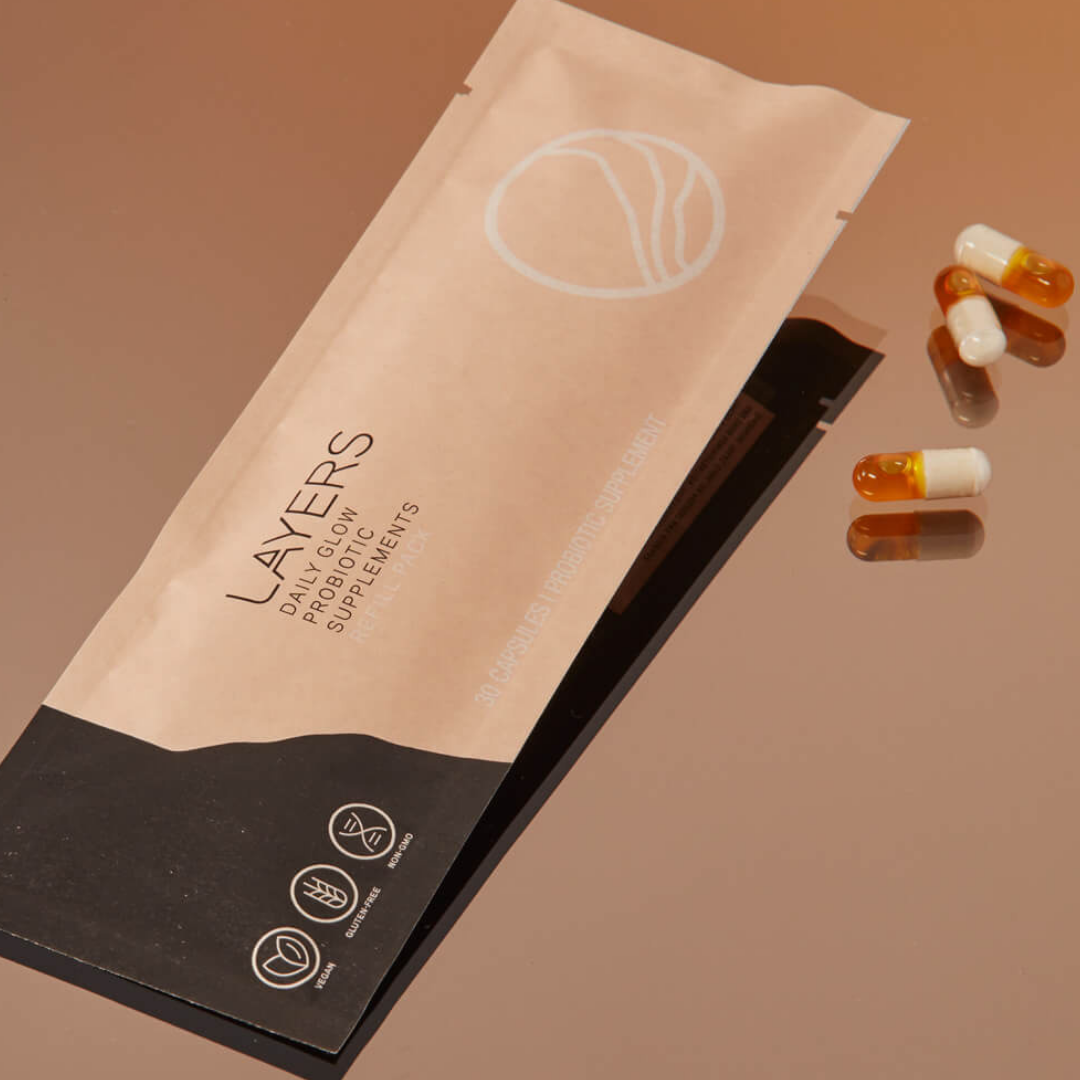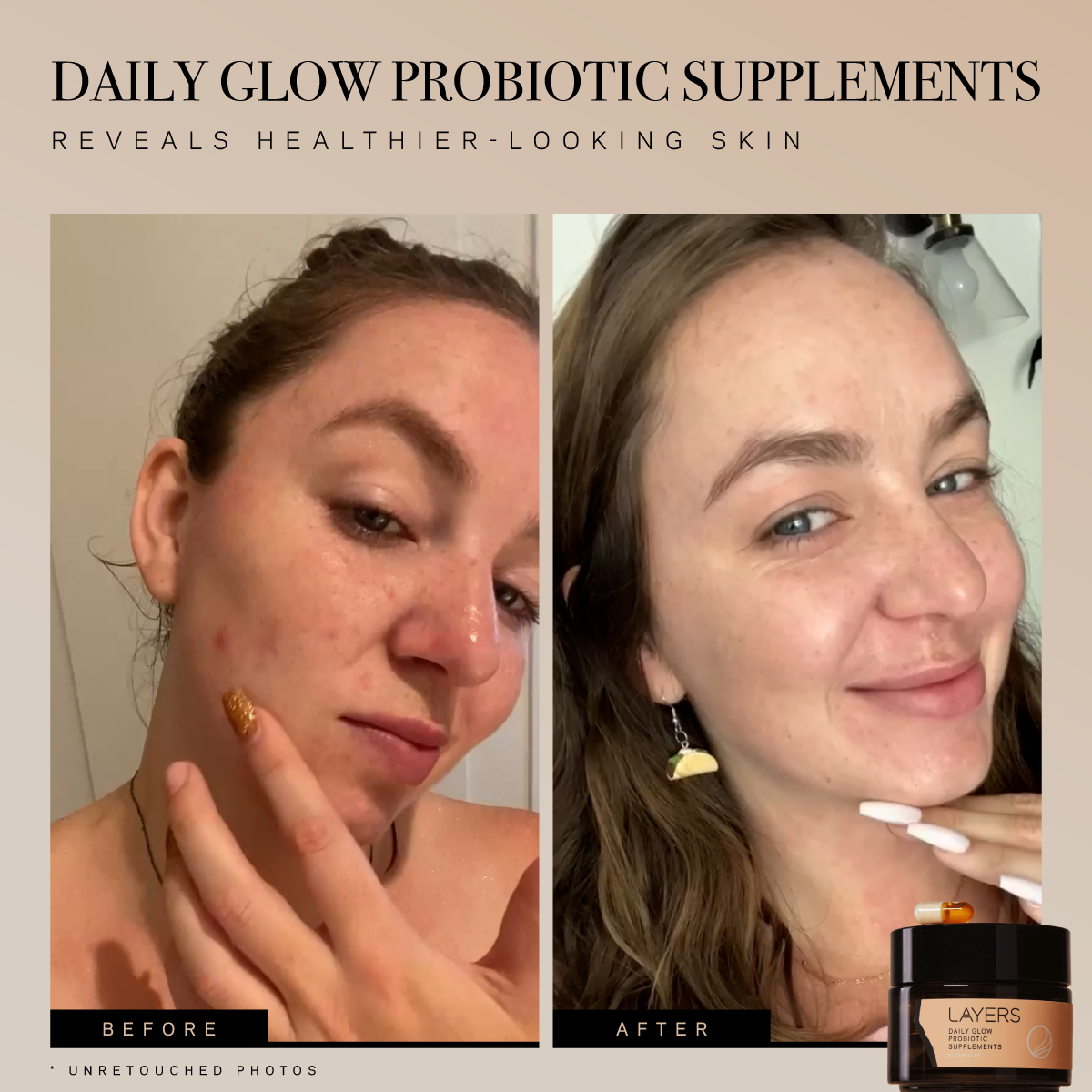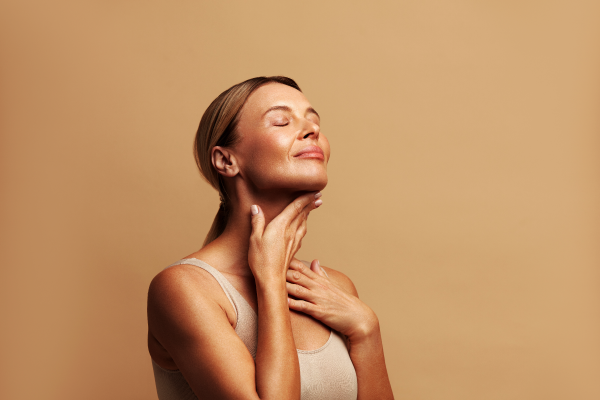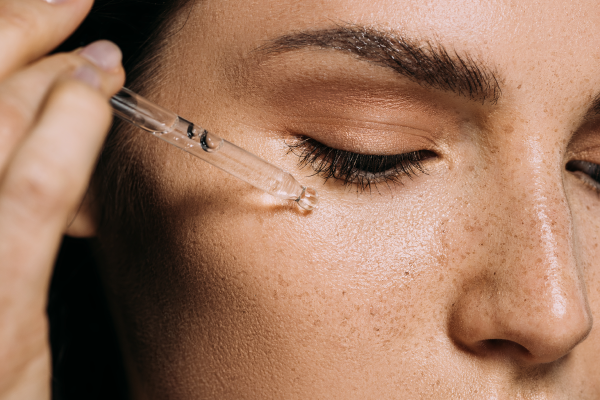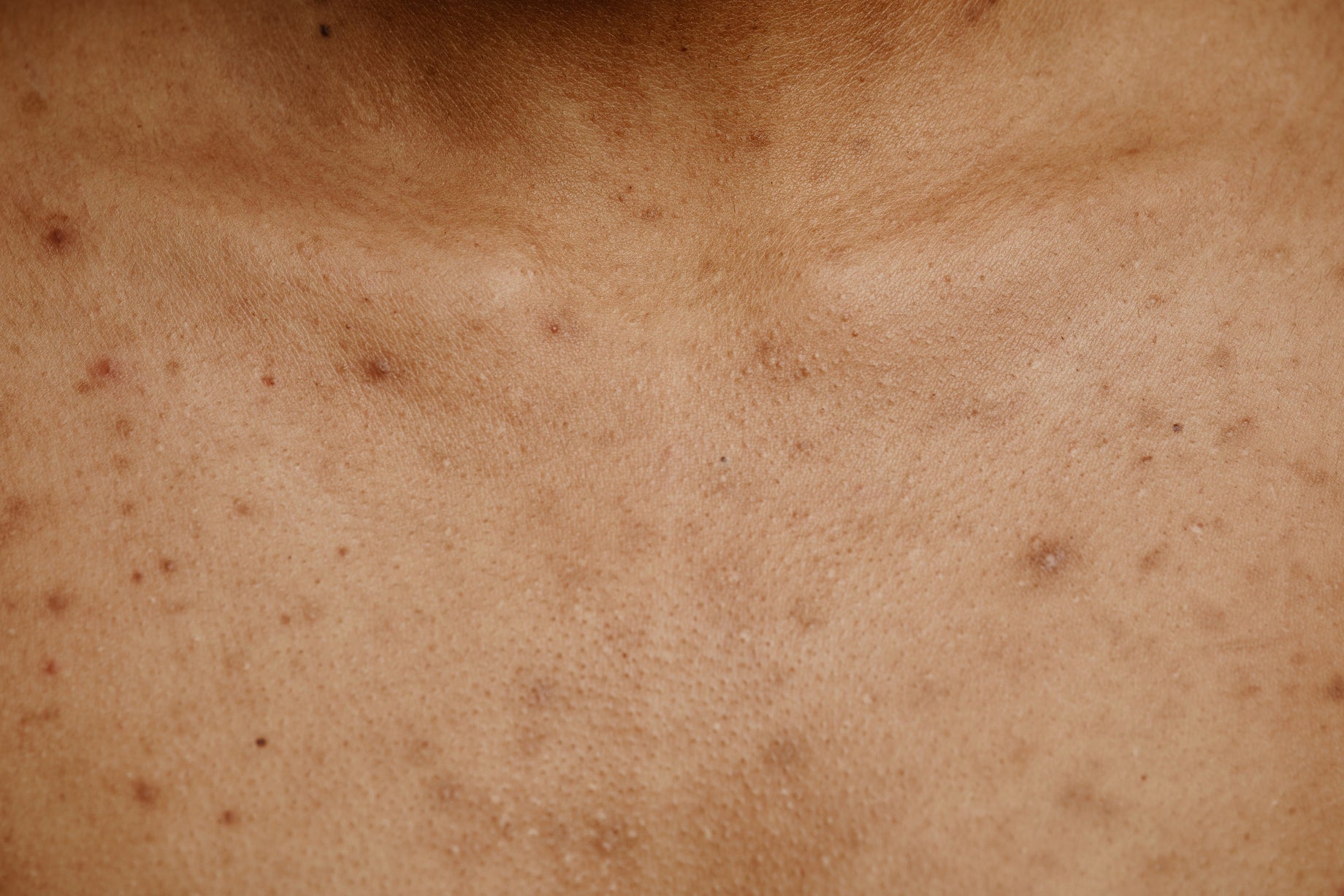Tired of dry, flaky, irritated skin? You need a skincare routine that focuses on balancing your microbiome. Here’s the easiest way to do it.
Crackly, uncomfortable, red, and rough. This is what having dry skin feels like. No matter the degree of discomfort, anyone who suffers from it can relate. Dry skin is no fun. But the more we learn about this and other skin conditions, the closer we are to finding answers.
WHAT CAUSES DRY SKIN
Dry skin is a result of either being unable to retain moisture or not producing enough of it to begin with. The medical term is xerosis, and it can cause a lot of discomfort. Dry skin can feel itchy and scaly to the touch, and sometimes it can be quite painful.
There are a few factors that contribute to dryness:
-
The environment: Climate and pollution can contribute to how much moisture your skin retains. Dry climates will cause your skin's natural moisture to evaporate, so moisturizer becomes especially important for skin health. Pollution can also cause your skin to overreact as a means of defense. Smog and chemical exposure interrupt the microbiome’s natural function, which can result in excessive dryness.
-
Hair and skincare products: Shampoo, conditioner, hairspray, harsh cleansers, and chemical-laden skincare products can do more harm than good if they don’t agree with your skin. Breakouts and dry skin are common reactions to harsh chemical ingredient exposure.
-
Lifestyle factors: Alcohol and tobacco use are dry skin culprits. Alcohol consumption causes your body to pull in additional moisture, robbing your skin of it in the process. For smokers, the inhalation of carcinogens and mutagens dries out the skin, exacerbating the appearance of wrinkles and causing premature aging.
-
Genetics and hormones: Genetics play a role in skin conditions because we inherit specific bacteria through our DNA that populate our gastrointestinal tract. Specific strains of gut bacteria have been linked to skin conditions like eczema, rosacea, and psoriasis.
-
Shower Conditions: Hard water and hot water both spell disaster for skin. If you shower using hard water (water with high mineral content), an invisible film can form. This film blocks pores and aggravates your skin. Hot water exposure also dries out your skin.
HOW TO HEAL DRY SKIN
Making your dry skin a little happier is easier than you think. While the most severe issues will benefit best from professional dermatological advice, there are everyday things you can do to calm your complexion and bring relief.
Think about your microbiome: Doing things that help reinforce your microbiome is the most important step. That means taking active measures to avoid irritating your skin so that it can do its job uninterrupted. Simple changes can make a big difference in your skin quality over time.
Cut out harsh products: Use gentle everything. Source products that combine the power of science and nature, and avoid anything with harsh chemicals. These will only irritate your skin and force your microbiome to work harder.
Swap hot for lukewarm: When you bath and shower, you should use lukewarm water or limit hot baths or showers to less than 5 minutes. Use a rich moisturizer within 2 minutes of exiting the shower and this will help lock in that much-needed hydration.
Take the probiotic path: Research is demonstrating the efficacy of both topical and oral probiotics when it comes to counteracting skin conditions. Most importantly for sufferers of dry skin, probiotics can help reduce transepidermal water loss.
THE ULTIMATE SKINCARE ROUTINE TO LOCK IN MOISTURE
Now you know what not to do and which products to avoid. So, let’s talk about building the perfect plan for turning dry skin around. If you want to change your skincare game, then it starts with an inside-out approach. Here’s how to move through your daily routine if you want to do right by your skin.
AM Routine:
-
Use a gentle cleanser: Our Balancing Milky Cleanser harnesses the most powerful natural elements to effectively cleanse while simultaneously moisturizing dry skin. It also introduces prebiotics like yogurt powder and inulin to reinforce your microbiome.
-
Moisturize: Our Immunity Moisturizer is enriched with probiotics, making it a true multitasker. Your skin barrier gets the moisture it needs while you deposit vital skin nutrients like lactobacillus ferment and plant-derived powerhouses like pomegranate, milk thistle, and meadowfoam oil.
-
Pop an oral probiotic: Probiotics are live microorganisms that provide numerous health benefits when consumed or applied to the skin. Specific strains have been shown to increase ceramide production. Ceramides are lipids that hold skin cells together, forming a protective layer that retains moisture. Effective strains include Lactobacillus rhamnosus and Bifidobacterium longum, both present in our one a day Daily Glow Supplements.
-
Eat a gut-friendly breakfast: Consuming foods rich in probiotics can lead to improved skin health. Fermented foods such as yogurt, kefir, sauerkraut, kimchi, and kombucha are excellent sources of probiotics. Including these in your diet can help balance your gut microbiome, positively impacting your skin.
PM Routine:
-
Eat a healthy dinner: Focus again on whole, healthy foods with plenty of fiber and vitamins. Of course, we all cheat sometimes, but for healthy skin, make healthy eating the norm.
-
Repeat with a gentle cleanser
-
Use a moisturizing serum: Serums are great ways to boost your skin's moisture content. You just need a tiny dab or two since these little bottles tend to be highly concentrated. Layers Probiotic Serum contains antioxidants, probiotics, and nature’s best moisturizers, providing you with a triple threat against dryness and helping to visibly reduce the signs of aging.
-
Seal it with moisturizer: Always remember to moisturize before going to bed. This locks in all of the extra moisturizing benefits of serums, and it helps reduce moisture loss while you sleep.
Dry skin can feel stressful and uncomfortable, but by incorporating healthy dietary habits, gentle skincare products, and probiotics into your routine, you’re likely to find some real relief. By strengthening the skin barrier and balancing your microbiome, you’re creating a calmer environment and naturally reducing inflammation. The result is skin that can better retain moisture. Hydrated skin is softer, happier, and healthier skin.

